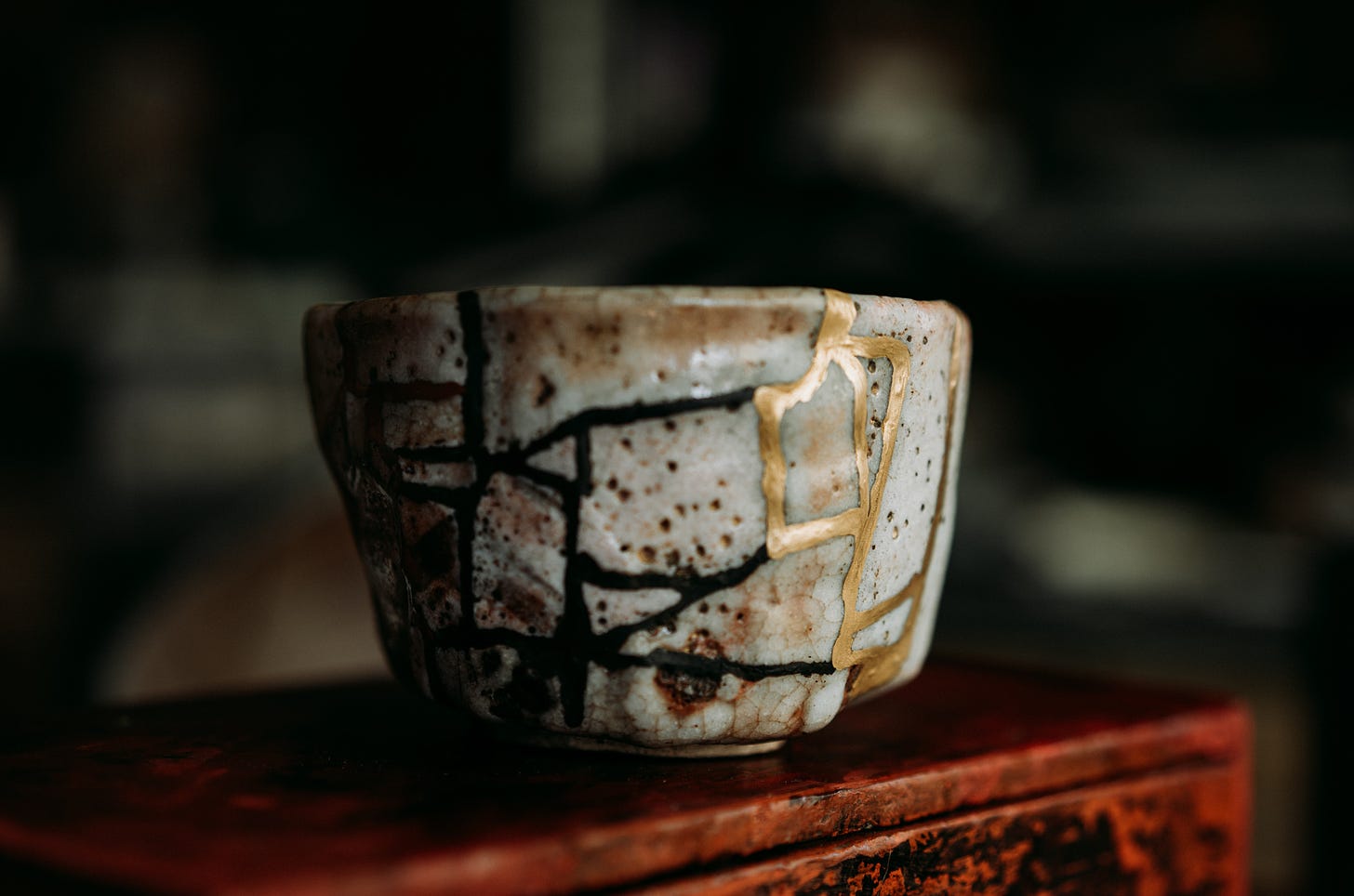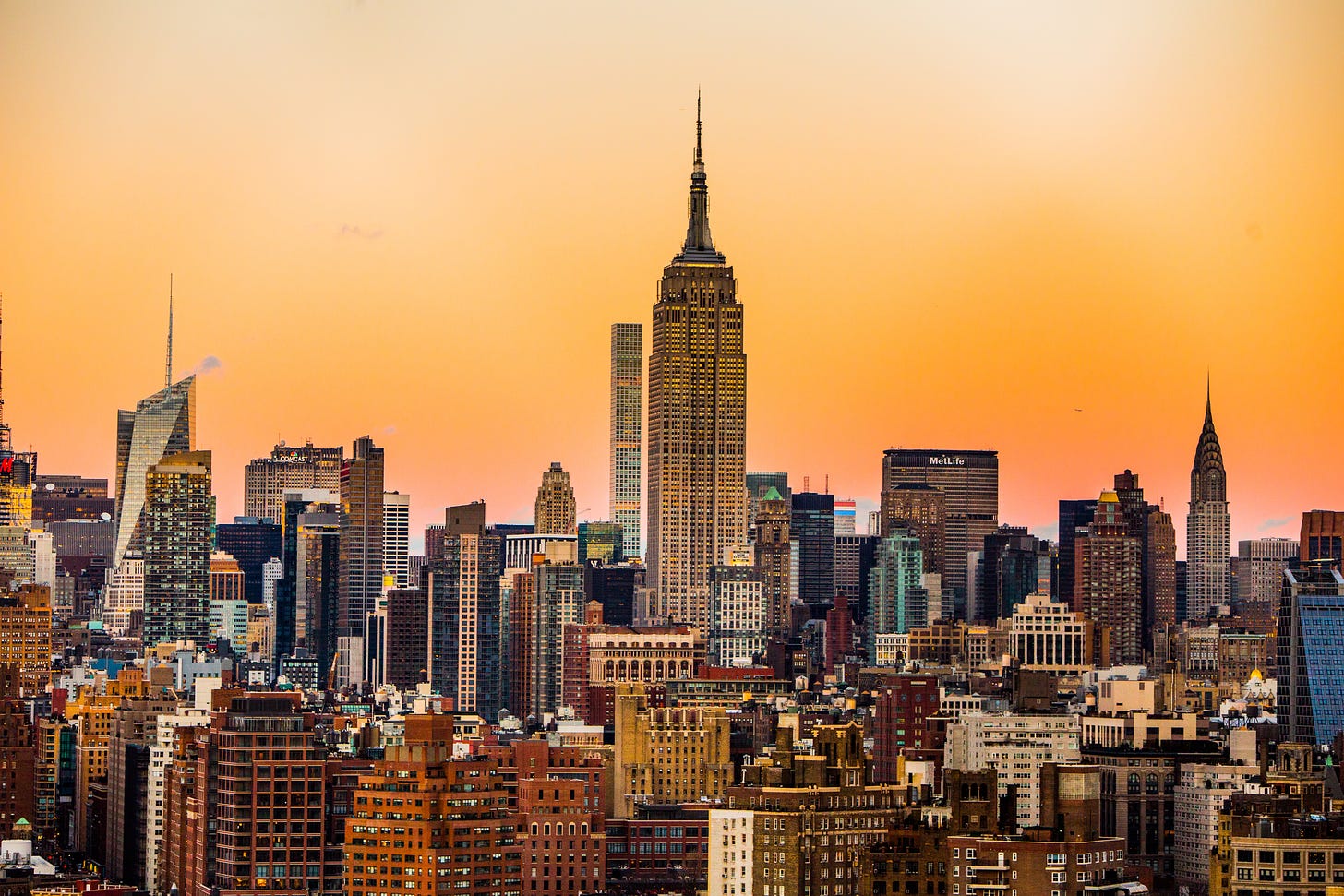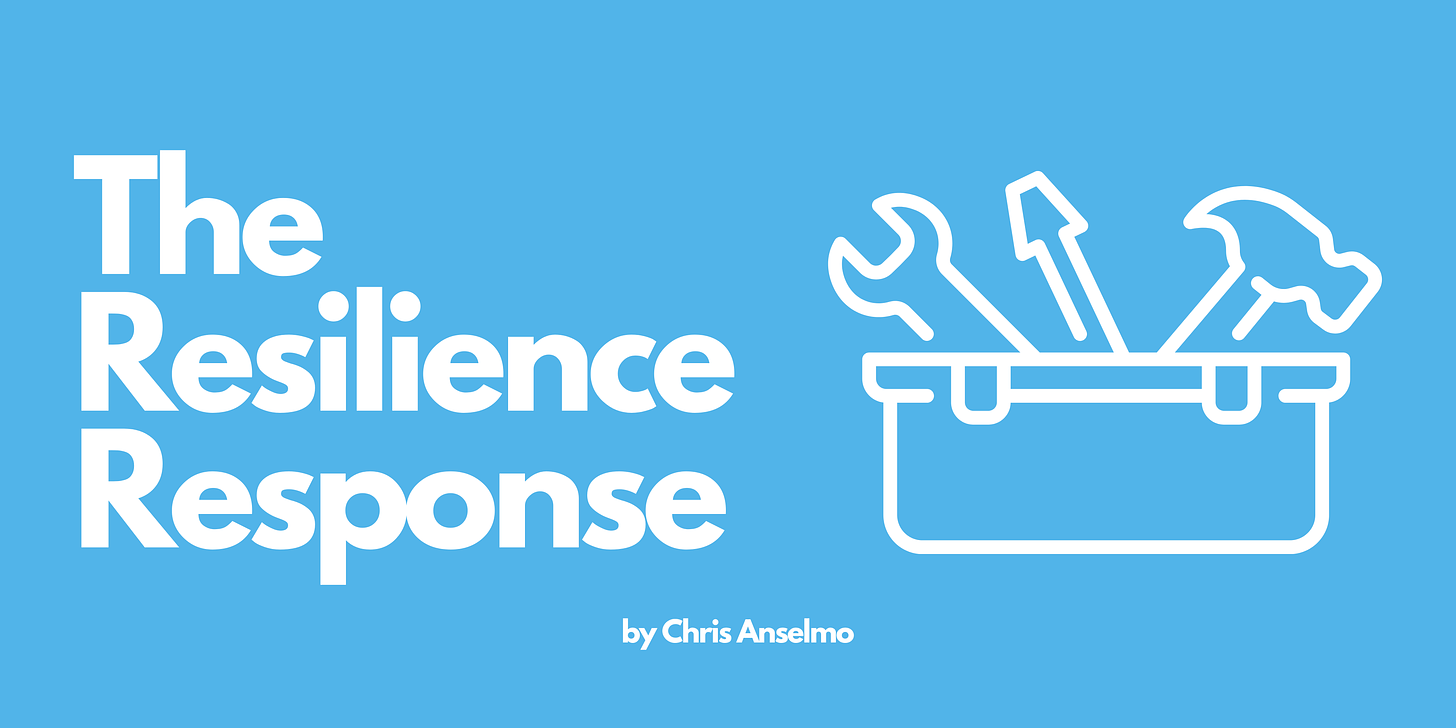The Resilience Response #10 - November 4, 2023
Finding beauty in our brokenness, Matthew Perry on how he wanted to be remembered, pushing beyond my comfort zone, and more
Happy Saturday!
Welcome to The Resilience Response, a newsletter that provides the tools and resources you need to face adversity with confidence.
A quick scheduling note: With Thanksgiving coming up in a few weeks, I am going to slightly alter the Hello, Adversity publishing schedule so I can take that week off.
Here’s the updated schedule:
Next Wednesday, November 8, I will post my first discussion thread — an open forum to introduce yourselves and connect with one another. I’m looking forward to it!
On Wednesday, November 15, I will resume publishing the biweekly newsletter. This way, I can skip over Thanksgiving week and publish again on the 29th.
I haven’t figured out my Christmas-New Year’s schedule yet but I’ll let you know when we get closer.
Here’s what’s on deck this week:
🔧 For the Toolkit: Finding beauty in our brokenness
🎙️ In the First Person: Matthew Perry on how he wanted to be remembered
💪 What’s Helped Me: Pushing beyond my comfort zone — my summer in New York City
✍️ Weekly Intention: Reflect on how you’ve grown from a difficult experience
🎁 Outtakes and Extras: An impromptu fireworks show and an insightful interview with a football legend
🔧 For the Toolkit: Finding beauty in our brokenness

Kintsugi is the Japanese art of repairing broken items — usually pottery — by fusing together the broken pieces with a lacquer mixed with gold or another precious metal. Once the process is complete, the item is restored to working condition and is even more beautiful than before. The flaws and imperfections are on full display, which imbues the piece with a newfound dignity.
Kintsugi is often used as a metaphor for resilience, and for good reason. Whether it’s the loss of a loved one, a crushing personal setback, or just the general state of the world, we are all broken by adversity at some point.
In these dark moments, we can’t help but wonder: Even if we somehow manage to pick up the shattered pieces of our former lives, will we ever be able to return to the way things were? Will we ever feel whole again?
The truth is, once the break occurs, we are never the same. But rather than fear this inevitability, we can learn to embrace a new definition of wholeness.
It’s a long process that takes many months and years. It will be painful. Unfortunately, there is no magic that speeds up this restoration. Every day, as we slowly piece ourselves back together, we must rely on our support system — our family, our friends, our faith/purpose, our toolkit of resilience strategies — to aid in the healing.
But once our restoration is complete, we will see just how resilient we truly are. We will be scarred, but that’s okay. These scars and imperfections become our source of strength, the gold and silver lines reminding us that life is, at the end of the day, a beautiful struggle.
Kintsugi requires time and painstaking care to yield results. If we show the same dedication to ourselves, we can someday wear our scars proudly. Then, we can show others how to do the same.
There is a crack, a crack in everything
That's how the light gets in.
- Leonard Cohen
🎙️ In the First Person: Matthew Perry on how he wanted to be remembered
Actor Matthew Perry, famous for his role as Chandler Bing on the iconic TV sitcom Friends, passed away last weekend at his home in Los Angeles.
Perry was outspoken about his struggles with addiction, which included the years when he was on Friends. Even though he originally wanted to keep his addiction private, Perry grew to understand that many people looked to him for inspiration as they battled their own demons.
It is a responsibility he took seriously:
"The best thing about me, bar none, is if somebody comes up to me and says, ‘I can't stop drinking, can you help me?' I can say yes and follow up and do it," he shared during a Q with Tom Power interview in November 2022. "It's the best thing."
As Perry noted, "And I've said this for a long time; when I die, I don't want Friends to be the first thing that's mentioned. I want that to be the first thing that's mentioned, and I'm going to live the rest of my life proving that."
💪 What’s Helped Me: Pushing beyond my comfort zone

The more my disease progresses, the more I have to remind myself what I can still do. Sometimes, I fall into the trap of believing that because I can no longer do something a certain way, it isn’t possible at all.
In these moments, I know I need to push myself beyond my comfort zone to regain confidence.
There are many examples in my past when I forced myself to do what I thought was impossible. One example that stands out is from 2015, when I got an internship offer in New York City during my first year of business school.
I had never lived in New York and didn’t know if I could handle the fast pace of city life, especially since I had grown significantly weaker over the preceding five years.
But deep down, living in New York was a lifelong dream of mine, and I wanted to make it work. My rational mind said to turn it down and remain in Boston, but I didn’t want to give up on my dream that easily.
To get my rational mind on board with the decision, I immersed myself in the experience of being a New Yorker. I read books and articles on what it was like to live in the city and watched as many YouTube videos as I could find about city life. I pictured myself eating at the bars and restaurants I came across in my research and visualized walking around different neighborhoods, taking in the sights and sounds.
Little by little, I believed I could make it work. And I did!
It wasn’t easy — the logistics of moving in and out of my apartment was a pain and there was a four-day period when I thought I needed an emergency root canal — but for three months, I got to be a New Yorker. I will always cherish the memories I made that summer.
I was able to make it work because I refused to remain in my comfort zone, even though my rational mind, every single day, kicked and screamed about the decision.
Stepping out of our comfort zone is scary. But it’s precisely this discomfort that allows us to grow. When we do hard things, we see what we’re capable of and we open ourselves up to experiences that can change our lives.
Sometimes, you have to follow your heart and figure out the logistics later.
✍️ Weekly Intention: Reflect on how you’ve grown from a difficult experience
When I think about my resilience journey, it is not always clear how I’ve grown from difficult experiences until I reflect honestly on these moments. When I do, I am able to see how I put myself back together after feeling broken. I realize, despite the difficulties, that I am stronger mentally and emotionally than I was before.
This week, think about a struggle you’ve experienced in the past that has made you a more resilient person today — perhaps a time when you were broken and had to put the pieces back together. How have you grown from the experience? What advice would you give your former self based on what you know now?
Take some time to jot down details about these experiences and what you learned. The next time you encounter tough times, you can use these examples as a source of hope.
I will share an example from my life in the comments. If you feel comfortable sharing your story, I’d love to hear from you!
🎁 Outtakes and Extras
Speaking of finding beauty in the brokenness, a truck carrying fireworks crashed on a highway in Canada last week, leading to an impromptu fireworks show that lasted more than an hour. Thankfully, there were no serious injuries.
Polina Pompliano of
has a new interview series for her Wednesday newsletter. This week, Polina interviewed football legend J.J. Watt. Despite being in his first year of retirement, Watt has kept himself busy as a new dad, philanthropist, investor, and part-owner of an English Premier League soccer team.I enjoyed learning how Watt’s approached life after football, and also what he thinks of the Taylor Swift-Travis Kelce relationship. He seems like a very down-to-earth guy.




Re: growing from a difficult experience:
One example that comes to mind is six years ago when I left my job for health reasons. It was an incredibly stressful time that led to physical issues. I was one year out of business school, unemployed, and didn't know what came next. I wasn't sure if anyone would hire me since I voluntarily left a good job. How would I explain the gap in my resume?
Over the next six months, I slowly pieced my career back together. I took any consulting work I could find. I networked. I took part in numerous informational interviews. One connection led to another, which led to attending a conference, which led to finding my next job. It was a difficult time, but I am proud of how I persevered.
This experience gave me the confidence to leave my job this year to pursue writing full-time. I knew that if it didn't work out, I could bounce back, because I had done it before. Thankfully, the circumstances this time were much more positive and I have more going for me.
Having read about your business school journey recently—where you alluded to your NYC internship—it was a treat to hear more about your summer in New York!
I'm writing this comment from the comfort of my couch, under a blanket with a cup of tea nearby, but I swear I agree with you about the importance of leaving your comfort zone. 😂